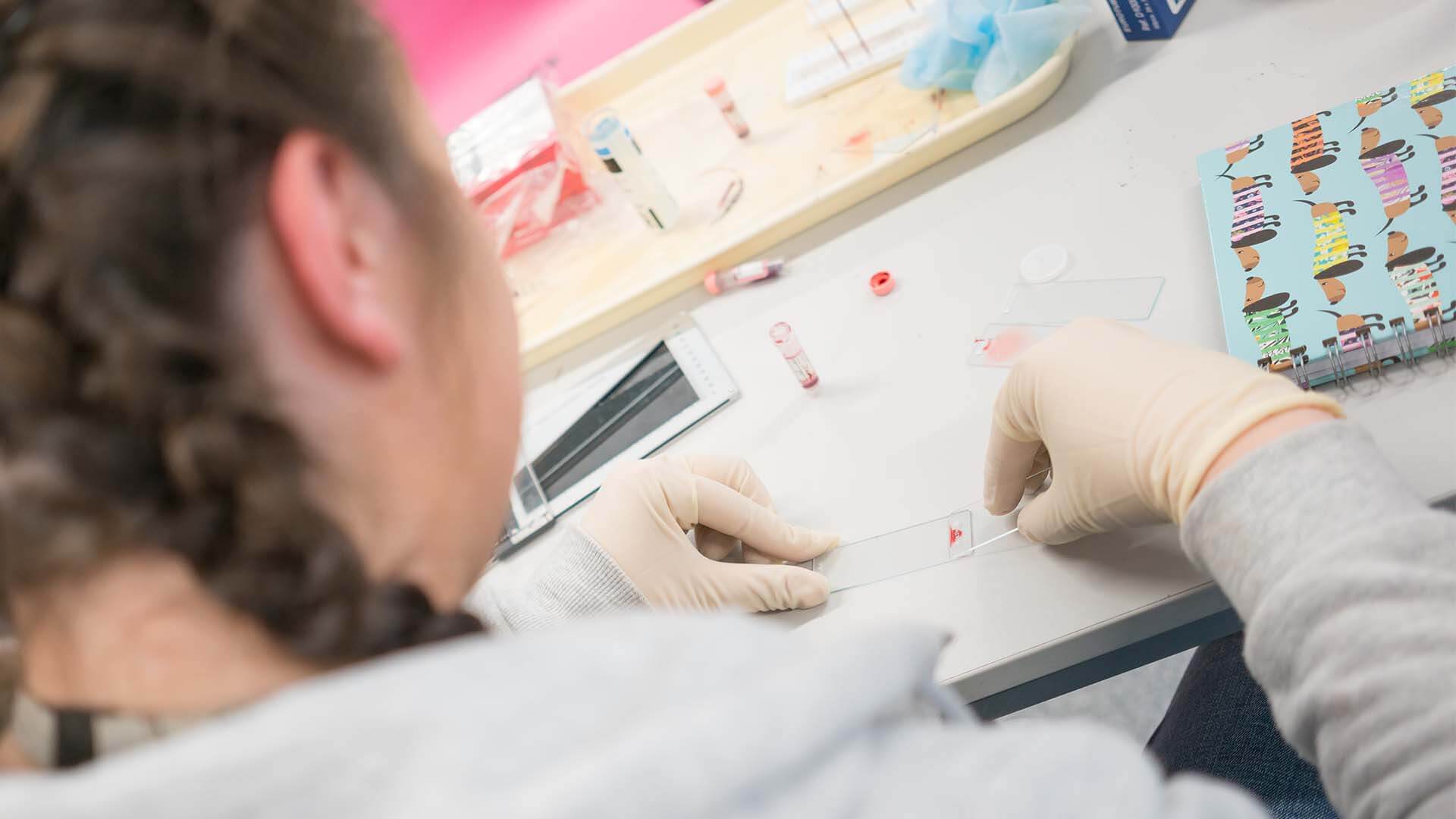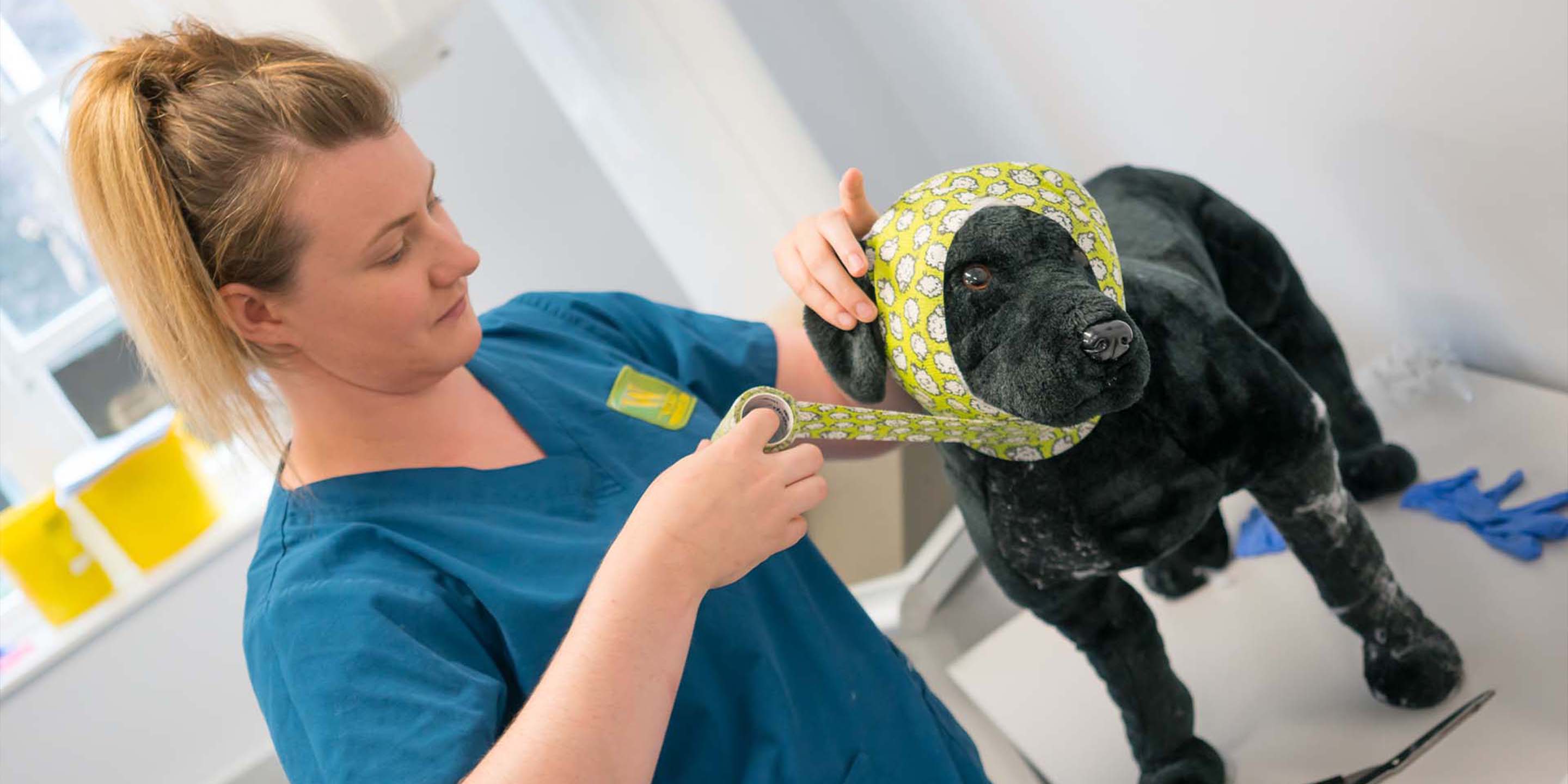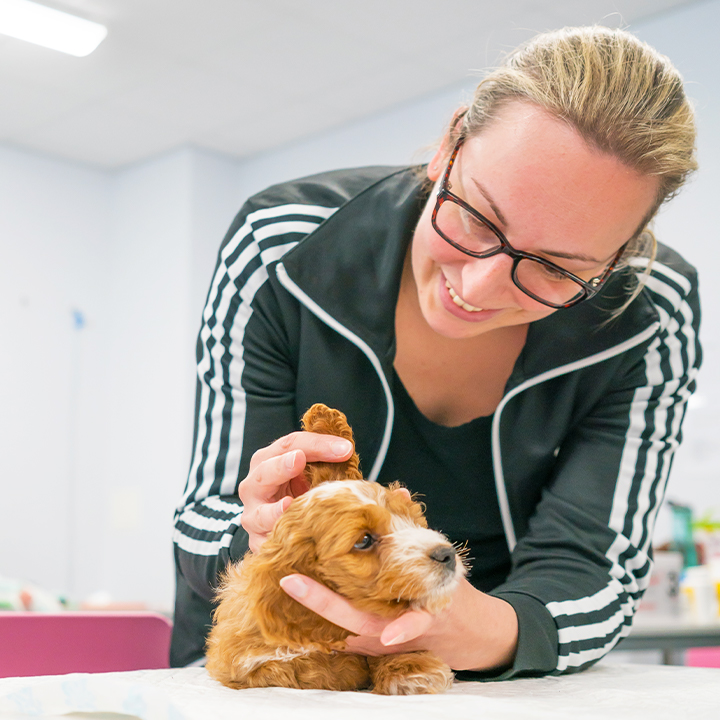Course overview
There are over 4,000 veterinary practices in the UK alone. Veterinary nurses are vital to the running of a successful practice and responsible for working with veterinary surgeons to provide expert care and treatment to a variety of animals. The sense of purpose that comes from nursing an ill animal back to health makes becoming a veterinary nurse a highly rewarding career.
Completion of the Level 3 Diploma in Veterinary Nursing qualification will allow you to apply for professional registration as a Registered Veterinary Nurse (RVN) with the Royal College of Veterinary Surgeons (RCVS).
It has been designed to develop Veterinary Nurses with a holistic approach to their work, a passion for making a difference to the lives of animals, and a robust understanding of their professional responsibilities.
You’ll be supported in developing vital clinical and employability skills in a real-life setting in preparation for the responsibilities and accountability of being a Registered Veterinary Nurse.
Important note: to be accepted onto this course, it is a requirement that students organise their own veterinary nursing placement before enrolment takes place in late August. Please read the 'Entry Requirements' section for more information on what this involves.
Topics
• Anaesthesia
• Radiography
• Diagnostic Imaging
• Medicines
• Pre and Post Operative Care
• Veterinary Emergencies
• Animal Welfare
• Functional Anatomy
• Professional Relationships within Veterinary Practice
Job opportunities after this course
Following successful completion of this course you may gain employment in the land-based sector as a veterinary nurse. Veterinary nurses then may specialise in small animals or equine and gain employment in varied practices in the UK and abroad.
Progression options following successful completion of this course may enable you to progress into employment as a head nurse, practice manager, clinical coach or a specialist veterinary nurse in the fields of surgery, oncology or hydrotherapy. Other options include laboratory technician or nutritional representative. Jobs you could progress into include:
• RCVS registered veterinary nurse assistant
• RCVS registered veterinary nurse
• Specialise in a range of topics, particularly in the care of exotic pets, feline medicine, anaesthesia or dentistry
• Work in specialist practices (feline, equine, reptile or large animal practices), emergency vet practices, referral practices orthopaedic, cardiology, oncology, ophthalmology) or veterinary/university hospitals
• Locum veterinary nurse
• Head veterinary nurse
• Veterinary practice manager
• Education
• Clinical coach
• Researcher
• Veterinary hydrotherapist
• Veterinary physiotherapist
• Veterinary supplies sales representative
Further study options after this course
As well as various specialist training options, veterinary nurses could progress on to study a veterinary nursing Foundation Degree and BSc (Top Up) programme.
Studying at degree level offers a range of benefits, including exploring professional interests, developing skills in research and academic writing, and paving the way to further postgraduate training at Master’s or even PhD level.
Entry requirements
Our entry requirements are reviewed annually and are subject to change as qualifications, awarding bodies and assessment criteria evolve.
Applicants MUST be at least 17 years old on 31st August to enrol on to this course.
Applicants MUST have completed a minimum of 5 weeks work experience in a veterinary practice.
Applicants must have organised employment or a work placement in an RCVS veterinary practice is essential, at a minimum of 3 days per week over the 2 year course period. This placement or employment must be confirmed between the student and the practice prior to enrolment on the course.
For the latest qualifications and grades required by course type/level, please follow this link to check the most up-to-date entry criteria for direct entry and internal progression at the college.
How is this course assessed?
External examination, clinical skill logs, practical exam and assignments.
When does the course start?
September 2025
Length of course
Two years, full-time, including employment/work placement arrangement with an RCVS approved veterinary practice.
Students spend blocks of time in college and blocks of time on placement at a practice. Placement blocks can last between two and nine weeks in length totalling approximately 2,080 hours over the two-year programme, with at least 936 hours of college teaching blocks.
Fees & Funding
Please read our Course Fees & Funding page.How to apply
To apply online for this course, please click on the 'Apply' button at the top/bottom of this page.
Alternatively, if you need assistance with your application or you would like to apply over the phone or using a paper-based application form, please call Student Services on 0191 743 0149.
If you're not quite ready to apply for this course and would like some more information or to speak to a member of staff then please click on the 'Enquire' button at the top/bottom of this page.





